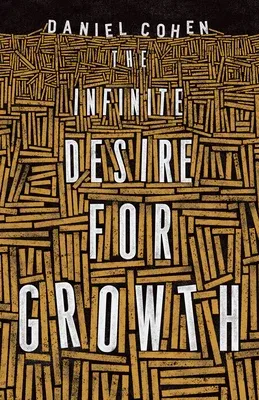Why society's expectation of economic growth is no longer realistic
Economic growth--and the hope of better things to come--is the religion
of the modern world. Yet its prospects have become bleak, with crashes
following booms in an endless cycle. In the United States, eighty
percent of the population has seen no increase in purchasing power over
the last thirty years and the situation is not much better elsewhere.
The Infinite Desire for Growth spotlights the obsession with wanting
more, and the global tensions that have arisen as a result. Amid finite
resources, increasing populations, environmental degradation, and
political unrest, the quest for new social and individual goals has
never been so critical.
Leading economist Daniel Cohen provides a whirlwind tour of the history
of economic growth, from the early days of civilization to modern times,
underscoring what is so unsettling today. The new digital economy is
establishing a "zero-cost" production model, inexpensive software is
taking over basic tasks, and years of exploiting the natural world have
begun to backfire with deadly consequences. Working hard no longer
guarantees social inclusion or income. Drawing on economics,
anthropology, and psychology, and thinkers ranging from Rousseau to
Keynes and Easterlin, Cohen examines how a future less dependent on
material gain might be considered and, how, in a culture of competition,
individual desires might be better attuned to the greater needs of
society.
At a time when wanting what we haven't got has become an obsession, The
Infinite Desire for Growth explores the ways we might reinvent, for the
twenty-first century, the old ideal of social progress.

